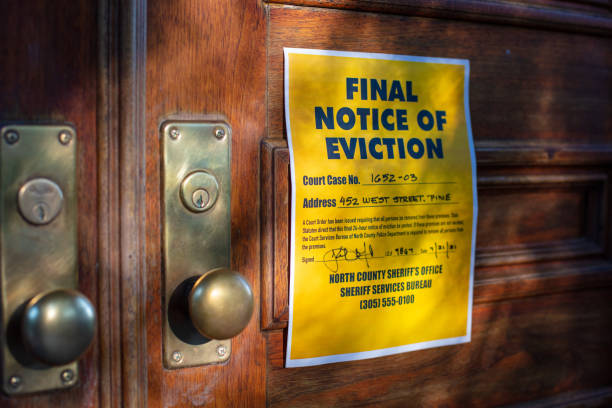Introduction:
California’s real estate finance industry is facing a significant compliance challenge with the passage of Assembly Bill 3108 (AB-3108), effective January 1, 2025. This legislation, which targets deceptive practices in mortgage lending, particularly those related to business-purpose loans and bridge loans, and introduces criminal liability for misclassification, is a crucial step toward consumer protection. However, it also carries significant implications for lenders, brokers, and private money investors, underscoring the gravity of the situation.
Key Points of AB-3108: Understanding the Legislation
AB-3108 makes it a felony for any mortgage broker or loan originator to knowingly misrepresent the purpose of a loan. Specifically, it prohibits:
- Misclassifying Consumer Loans as Business Loans
Instructing or causing a borrower to sign documents for a business, commercial, or agricultural loan when the lender knows the borrower intends to use the funds for personal, family, or household purposes. - Improper Bridge Loan Structuring
Instructing or causing a borrower to sign documents for a bridge loan when the lender knows the proceeds will not be used to acquire or construct a new dwelling that will become the borrower’s principal residence.
Key Definitions
- Bridge Loan: A temporary loan (12 months or less) intended for the acquisition or construction of a dwelling that will become the borrower’s principal residence.
- Business-Purpose Loan: A loan primarily for business, commercial, or agricultural purposes, exempt from many consumer protection laws.
Why This Matters
Historically, some lenders have relied on borrower-signed business purpose statements without verifying intent. Under AB-3108, that’s no longer enough. If a borrower defaults and claims the lender knew the funds were for personal use, the lender could face criminal charges and civil liability.
Yes, AB-3108 does create an incentive for defaulting borrowers to allege mortgage broker fraud, even if the claim is questionable. Here’s why:
How the Incentive Works
- The law makes it a felony for a broker or lender to knowingly misclassify a loan’s purpose (e.g., calling it a business-purpose loan when it’s really for personal use).
- If a borrower defaults, they could claim:
- “The lender knew this wasn’t a true business-purpose loan and told me to sign documents saying otherwise.”
- Such an allegation could:
- Delay foreclosure or other collection actions.
- Give the borrower leverage in negotiations (e.g., loan modification or settlement).
- Potentially invalidates the loan if fraud is proven.
Why This Is a Risk
- The statute focuses on the lender’s knowledge and intent, which is hard to disprove after the fact.
- Even if the lender acted in good faith, the mere accusation can trigger:
- Regulatory investigations
- Civil litigation
- Criminal exposure for the broker or lender
Industry Concerns
Legal experts warn that AB-3108, while aimed at predatory practices, opens the door for opportunistic claims by borrowers in distress. This is especially true for:
- Owner-occupied properties used as collateral for business-purpose loans.
- Bridge loans, where the borrower later changes plans for the property.
Real-Life Scenarios
Example 1: The “Business Loan” That Wasn’t
A borrower applies for a $250,000 loan, stating it’s for expanding a small business. The lender accepts a signed business-purpose statement without further verification. Later, the borrower uses the funds to pay off personal credit cards and remodel their home. When the borrower defaults, they allege the lender knew the funds weren’t for business use. Under AB-3108, this could trigger felony charges for the lender.
Example 2: The Bridge Loan Trap
A homeowner takes a $500,000 bridge loan, claiming it’s for purchasing a new primary residence. In reality, they use the funds to buy a vacation property. If the lender failed to verify the intended use, they could face criminal liability for misclassification.
Example 3: Borrower Pushback in Default
A borrower in foreclosure claims the lender “coached” them into signing a business-purpose affidavit to avoid consumer lending laws. Even if the lender didn’t intend fraud, the allegation alone could lead to costly litigation and regulatory scrutiny.
Compliance Risks
- Litigation Exposure: Borrowers in default may allege fraud to avoid repayment.
- Criminal Liability: Intentional misclassification can lead to felony charges.
- Reputational Damage: Regulatory scrutiny and negative publicity can harm your business.
Best Practices for Lenders
To mitigate risk, lenders should adopt robust verification protocols:
- Document on the Business Purpose
- Require a handwritten statement from the borrower explaining the business use.
- Collect supporting evidence (e.g., invoices, business plans, financial statements).
- Control Loan Proceeds
- Disburse funds into a business bank account, not a personal account.
- Confirm Intent
- Conduct a recorded conversation (with consent) confirming the borrower’s understanding and intent.
- Legal Review
- For complex cases, obtain a legal opinion from the borrower’s counsel.
- Bridge Loan Scrutiny
- Verify that the property being acquired or constructed will become the borrower’s primary residence.
Industry Impact
AB-3108 passed with overwhelming legislative support, signaling California’s commitment to consumer protection. However, the law may have unintended consequences, such as:
- Increased borrower fraud claims during defaults.
- Higher compliance costs for lenders.
- Potential tightening of credit for legitimate business-purpose borrowers.
Final Thoughts
AB-3108: The Cost of Non-Compliance AB-3108 is a wake-up call for lenders and brokers: due diligence is no longer optional. The cost of non-compliance could be catastrophic—both financially and legally. Now is the time to review your loan origination processes, train your staff, and implement safeguards to stay on the right side of the law.
